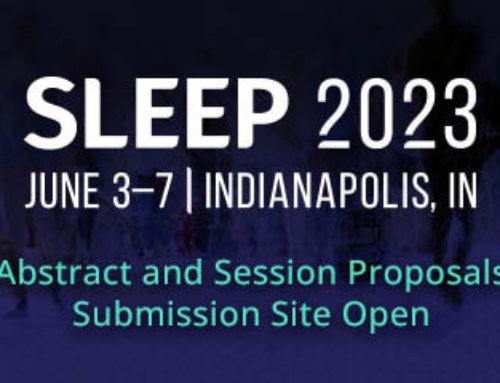WESTCHESTER, Ill. – Research examining the impact of sleep in school-age children suggests that even mild sleep loss produces marked deficits in their cognitive development and functioning. Sleep restriction can alter children’s initial stages of speech perception, which could contribute to disruptions in cognitive and linguistic functioning – skills necessary for reading and language development and comprehension, according to a research abstract that will be presented Tuesday at SLEEP 2007, the 21st Annual Meeting of the Associated Professional Sleep Societies (APSS).
Rachel Waford, of the University of Louisville, who authored the study, recorded event-related potentials, as a measure of neurocognitive development, from 32 children six-to-seven years of age while they listened to the following computer-generated speech syllables: /ba/, /da/ and /ga/.
The results showed that those children not getting an adequate amount of sleep were more likely to phonetically code incorrectly different speech sounds.
“Our research has shown that even minor sleep loss of one hour less per night for seven nights contributes to disruptions in neurocognitive functioning,” said Waford. “The early school years are crucial windows that determine future learning. Therefore, it is imperative that children in this age range are well-rested to prepare for the demands of the school day.”
Experts recommend that children in pre-school sleep between 11-13 hours a night, and school-aged children between 10-11 hours of sleep a night.
Your child should follow these steps to get a good night’s sleep:
- Follow a consistent bedtime routine.
- Establish a relaxing setting at bedtime.
- Get a full night’s sleep every night.
- Avoid foods or drinks that contain caffeine, as well as any medicine that has a stimulant, prior to bedtime.
- Do not go to bed hungry, but don’t eat a big meal before bedtime either.
- The bedroom should be quiet, dark and a little bit cool.
- Get up at the same time every morning.
Parents who suspect that their child might be suffering from a sleep disorder are encouraged to consult with their child’s pediatrician, who will refer them to a sleep specialist.
The annual SLEEP meeting brings together an international body of 5,000 leading researchers and clinicians in the field of sleep medicine to present and discuss new findings and medical developments related to sleep and sleep disorders.
More than 1,000 research abstracts will be presented at the SLEEP meeting, a joint venture of the American Academy of Sleep Medicine and the Sleep Research Society.
The four-day scientific meeting will bring to light new findings that enhance the understanding of the processes of sleep and aid the diagnosis and treatment of sleep disorders such as insomnia, narcolepsy and sleep apnea.
CONTACT:
Jim Arcuri
(708) 492-0930, ext. 9317
jarcuri@aasm.org
# # #








